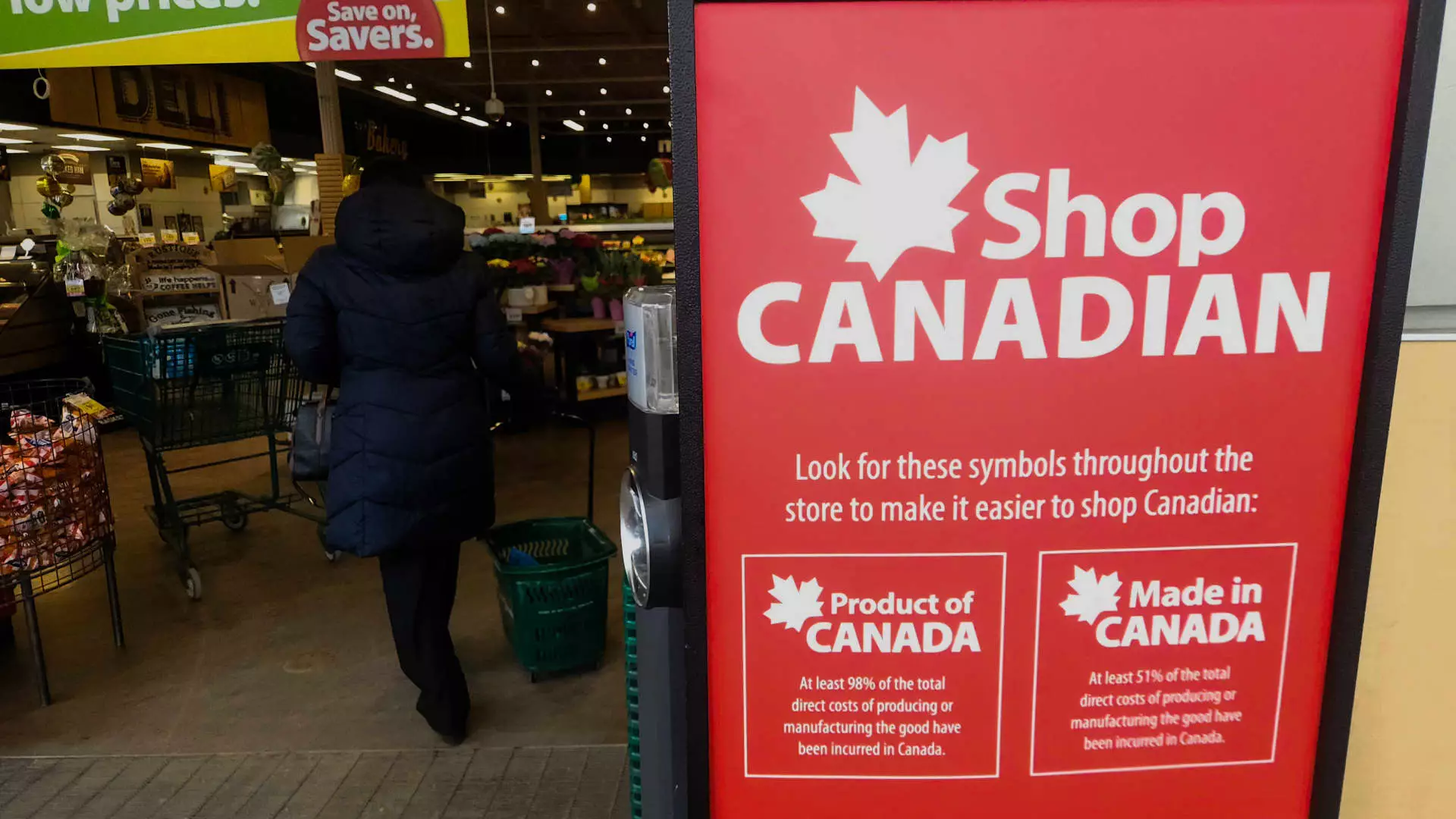In an era where global commerce defines much of our economic landscape, the impact of political decisions on trade relationships cannot be overstated. The imposition of tariffs, particularly by a nation as powerful as the United States, reverberates far beyond mere financial implications. The emotional and psychological ramifications are equally profound. When the Trump administration levied tariffs on Canadian goods, it instigated not merely an economic showdown but a crisis of trust between neighbors who have traditionally relied on each other for trade and support. For many involved, it wasn’t just about money; it was a palpable sense of betrayal.
The Canadian Federation of Independent Business (CFIB) has made clear through surveys that this sentiment is widespread. Many Canadian business owners felt personally impacted, viewing the tariffs not solely as a fiscal burden but as an attack on their livelihoods. The emotional distress reported by these entrepreneurs exemplifies how the interconnectedness of trade relationships makes them susceptible to the whims of political machinations. A business’s health is a reflection of its community’s spirit, and such abrupt and aggressive actions can have devastating effects.
A Breach of Trust in Trade Agreements
Trade relationships are built on trust and predictability. The sudden implementation of tariffs by the U.S., especially aimed at long-standing partners like Canada, disrupts this foundation. Many Canadian entrepreneurs have started to question whether it is worth their while to pursue relationships with American companies, given the unpredictability introduced by the tariffs.
The CFIB reports that more than half of its members now see the U.S. as an unreliable trading partner. In the delicate world of international trade, such feelings can sow seeds of doubt that may not easily be resolved. When one partner breaks the rules, it doesn’t just hurt financially; it fractures the essential bonds of cooperation that have taken years, if not decades, to cultivate. This fragmented trust can transform business landscapes, leading to more protectionist stances and a reduction in cross-border trade.
Branding Goes Beyond Products
Interestingly, some Canadian companies have begun brand retaliations that showcase national pride in a unique way while also subtly protesting against tariffs. For example, Balzac’s Coffee Roasters rebranded its classic Americano as the “Canadiano,” embedding a sense of identity directly into their product. Similarly, grocery chains like Your Independent Grocers emphasized their Canadian roots by labeling locally produced products with a distinct maple leaf badge, a move that illustrates how branding becomes an extension of local loyalty in the face of external challenges.
Such initiatives showcase how businesses are trying to navigate these turbulent waters, not just politically but also socially and emotionally. By turning tariffs into a branding opportunity, these companies are betting that consumers will rally around national pride. This is a powerful reminder of the influence consumer behavior can have—showing that buying decisions are not merely influenced by price but also by a sense of belonging and collective identity.
Consequences of Economic Isolation
The implications of these tariff battles stretch far beyond immediate financial concerns. When countries adopt isolated approaches to trade, they risk generating economic instability not just for themselves but for global markets as a whole. The relational aspect of trade and commercial partnerships means that a small rift can turn into a chasm. Former Secretary of State Antony Blinken expressed concerns over declining U.S. “soft power” in the global arena, pointing out that economic isolation could lead to a loss of influence, drastically altering the balance of global partnerships.
The potential for increased hostility among trading nations, should protectionist policies continue, raises broader questions about the long-term vision for international relations. Countries like Canada, often seen as steadfast allies to the U.S., might seek other partnerships, which could dilute American influence internationally. If relationships built over years can diminish in the span of tariffs, we must question what kind of economic future lies ahead.
Rebuilding Relationships: A Daunting Task
Even if tariffs were to be rolled back, the path to rebuilding relationships will be fraught with challenges. CFIB’s Pohlmann highlights a crucial point: the emotional scars left by these economic policies will linger. Trust isn’t merely something that can be restored with a policy change; it requires genuine commitment and time. The loss of contracts and the fracturing of long-standing partnerships present a challenging landscape for both Canadian and American businesses.
Ultimately, mutual reliance is at stake, and the damage done may leave lasting marks on future interactions. In the grand scheme of things, resisting the urge for immediate political gain in favor of long-term relational stability may prove to be the wiser route. Trust, once lost, is often harder to regain, and as we witness these dynamics unfold, the question remains: what future do we envision for our interconnected economies?

